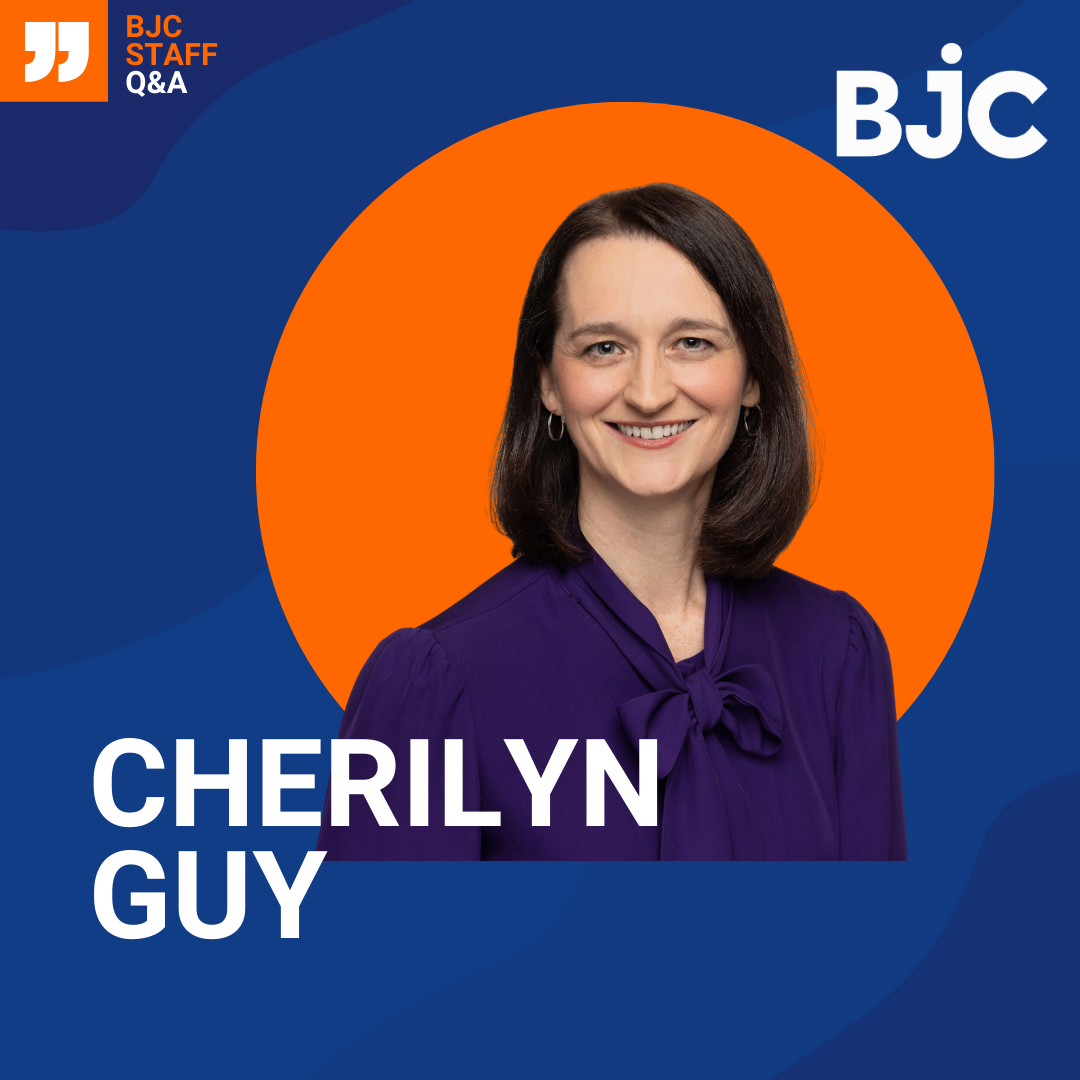Bringing conversations to new ears: BJC staff Q&A with Cherilyn Crowe Guy

As BJC’s content strategy director, Cherilyn Guy helps tell the story of BJC’s work in a variety of ways – she produces BJC’s podcasts, serves as editor-in-chief of Report from the Capital, oversees the website, captures images, and collaborates on the creation of BJC’s materials. She grew up in Fort Payne, Alabama, and earned degrees from Samford University and Vanderbilt University.
What does faith freedom mean to you?
It is a commitment to ensuring that people and our government won’t do something that God doesn’t do: coerce faith.
What’s one thing you’ve accomplished at BJC that makes you proud?
I’ve been particularly proud to lead BJC’s foray into podcasts, including launching the Respecting Religion podcast. I’ve learned so much by listening to Brent, Holly, Amanda, and Jennifer during my tenure as they explain complicated concepts and legal cases in the office, and I love that I can be part of bringing those conversations to new ears. BJC has been breaking down complex issues in print for decades, and now we do it through podcasting, allowing people a new avenue into our work.
What have you been reading, watching, and listening to lately?
All My Knotted-Up Life by Beth Moore, “Abbott Elementary,” and – thanks to my husband – “Pardon the Interruption” on ESPN.
Who inspires you?
My grandmother.
What’s your favorite BJC quote or saying?
For faith to be vital, it must be voluntary.
What has been your favorite BJC event during your tenure?
It’s really hard to choose – in more than 10 years at BJC, I’ve learned so much and been able to be part of many amazing and eye-opening programs. I always learn something new from lectures and events, and sometimes in surprising places.
When he delivered our Walter B. and Kay W. Shurden Lectures in 2015, Alan Brownstein’s first presentation focused on engaging in respectful discourse about religion and equality. I still think about his wisdom about the power of speech: It can be a tool for building bridges, or it can tear others down. We have to communicate in a way that understands the needs and concerns of others, and we also have to communicate in a way that helps them understand our needs and concerns. He discussed ways religious and nonreligious people can better understand each other: While the two might not have common ground when it comes to religious devotion and God’s sovereignty, they both can understand the concept of love and how love for others comes with certain obligations.




